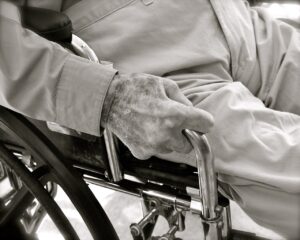Dealing with the aftermath of alcohol consumption, whether from a night out or an accidental overindulgence, often prompts the question of how to expedite the removal of alcohol from the body. While the liver is primarily responsible for metabolizing alcohol, there are some strategies to assist in the process and alleviate symptoms of intoxication.
Table of Contents
Toggle1. Hydration is Key
Water as a Detoxifier
Drinking water is one of the most effective ways to flush alcohol out of your system. Alcohol can lead to dehydration, and adequate water intake helps rehydrate the body, supporting the liver in processing and eliminating toxins.
2. Consume Electrolyte-Rich Drinks
Replenishing Essential Nutrients
Alcohol consumption can deplete electrolytes in the body. Drinks containing electrolytes, such as sports drinks or coconut water, can aid in restoring the balance of essential minerals, promoting faster recovery.
3. Eat Nutrient-Rich Foods
Supporting the Detoxification Process
Consuming nutrient-rich foods can assist the liver in breaking down alcohol. Foods high in antioxidants, such as fruits and vegetables, can enhance the body’s detoxification capabilities.
4. Get Adequate Rest
Recovery Through Sleep
Rest is crucial for the body to recover from the effects of alcohol. Ensure you get sufficient sleep, as it allows the liver to focus on detoxification without the additional strain of other activities.
5. Exercise Moderately
Promoting Blood Circulation
Engaging in moderate exercise can help increase blood circulation, facilitating the removal of alcohol byproducts from the body. However, intense exercise may exacerbate dehydration, so moderation is key.
6. Consider Over-the-Counter Supplements
Supporting Liver Function
Certain supplements, such as milk thistle or vitamin B complex, are believed to support liver function. However, it’s essential to consult with a healthcare professional before taking any supplements, as individual responses may vary.
7. Avoid Additional Alcohol Consumption
Preventing Further Intoxication
The obvious but crucial step is to avoid consuming more alcohol while your body is still processing the initial intake. Additional alcohol will prolong the detoxification process and may exacerbate the associated symptoms.
8. Time is a Factor
Patience in the Detoxification Process
Ultimately, time is the most effective method. The liver metabolizes alcohol at a consistent rate, and the body needs time to eliminate it fully. Patience is key, and attempting to speed up the process should be done cautiously.
Conclusion
Clearing alcohol from your system involves a combination of hydration, nutrition, rest, and time. While there’s no magical solution to instantly eliminate alcohol, these methods can assist the body in the natural detoxification process.
FAQs
- Does sweating help eliminate alcohol from the body?
- Sweating alone won’t significantly impact alcohol elimination. While exercise can promote blood circulation, sweating is not a primary method of alcohol removal.
- Can coffee or caffeine speed up the detoxification process?
- Caffeine is a diuretic, which may contribute to dehydration. While coffee won’t eliminate alcohol, it’s essential to balance caffeine intake with water to stay hydrated.
- Is there a specific timeline for alcohol elimination from the body?
- The liver metabolizes alcohol at an average rate of about one standard drink per hour. However, individual factors, such as metabolism and overall health, can influence this timeline.
- Can detox drinks or kits expedite the process?
- Detox drinks or kits are often marketed as quick solutions, but their efficacy is debated. It’s crucial to approach such products with caution and seek professional advice if considering them.
- When should someone seek medical help for alcohol intoxication?
- If someone exhibits severe symptoms of alcohol poisoning, such as confusion, vomiting, seizures, or difficulty breathing, it’s crucial to seek immediate medical assistance.
Read more: Mental Health Nursing
Read more: Porn Addictions Symptoms

